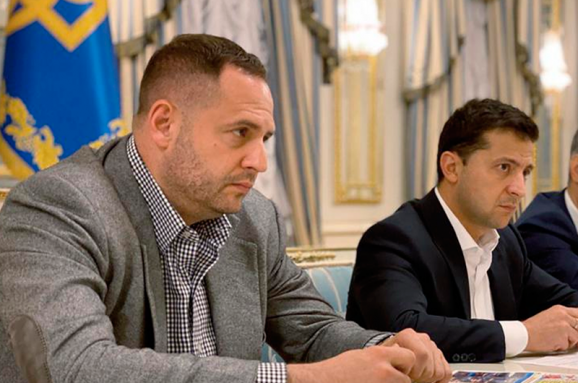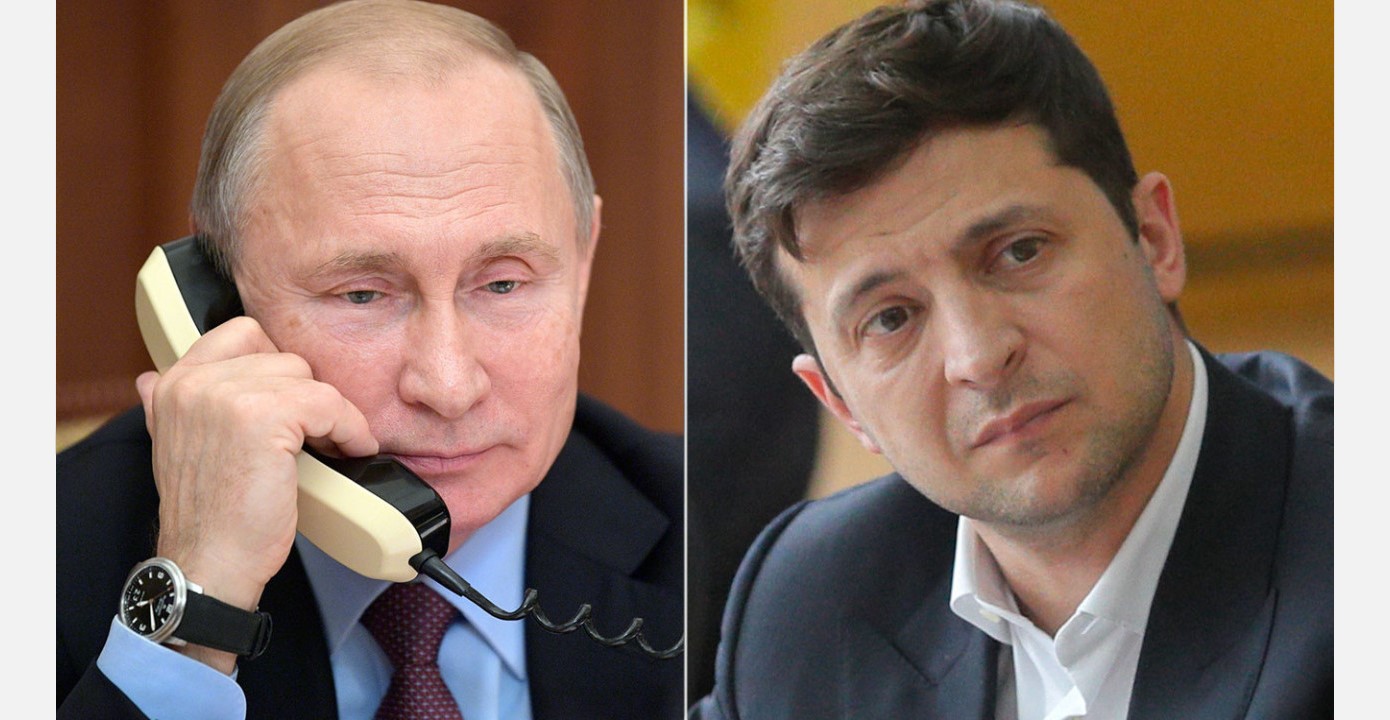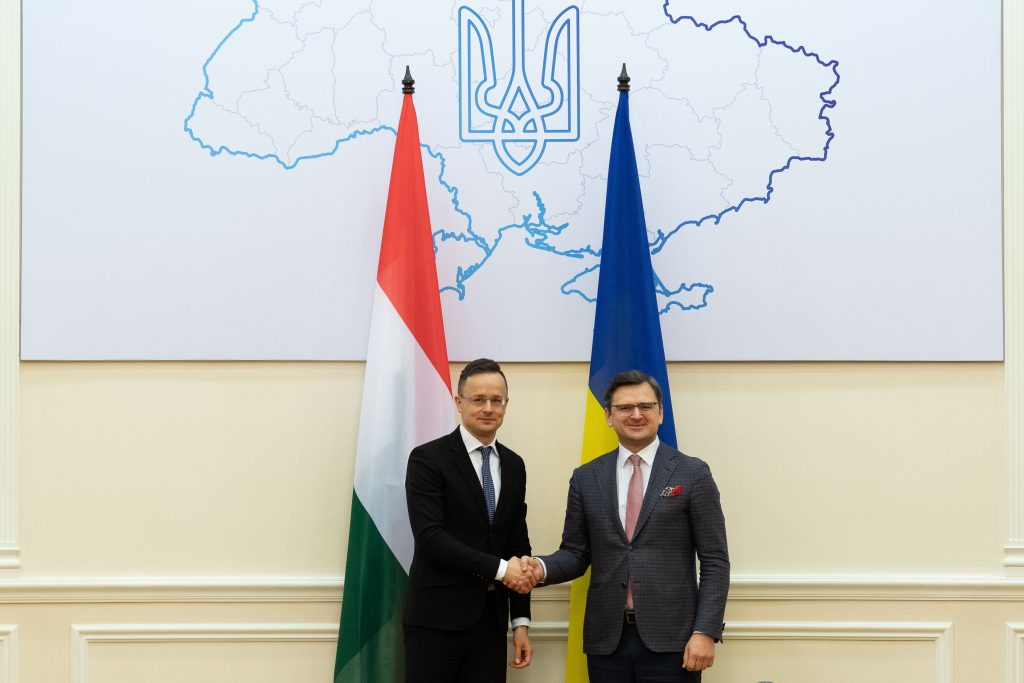Unwittingly, Zelenskyy’s public statements and actions are conveying his vulnerabilities. Disappointed by the Franco-German mediation’s conclusive failure in the Normandy forum, Zelenskyy and his entourage are casting about for other mediators and forums of their imagination (“Geneva,” “Budapest,” “United States–United Kingdom–Canada,” the Pope in Rome, Israeli Prime Minister Benjamin Netanyahu), discussing these chimerical ideas publicly and neglecting to coordinate with the governments involved. These, unsurprisingly, keep silent. Against this backdrop, the road to Putin must now appear as the only realistic option to Zelenskyy and his advisors.
Meeting personally with Putin has been a goal in itself for Zelenskyy from the outset of his presidency. Even in recent months he announced multiple times that a Normandy summit with Putin was imminent, ignoring all the evidence to the contrary, and hoping for the quadripartite summit to frame his bilateral meeting with the Russian leader (see EDM, February 4, 8, 22, March 25, 30, April 1, 19). In fact, Berlin and Paris were aligned all along with Moscow’s position that Kyiv must fulfill the decisions of the Normandy group’s December 2019 Paris summit in order to pave the way for the next summit. Those decisions are, however, unacceptable to Ukraine and to Zelenskyy himself, who has learned enough to repudiate them, hence foreclosing a meeting with Putin via a Normandy summit (see below).
Russia’s buildup of military power along Ukraine’s borders in the first three weeks of April, however, gave Zelenskyy and his trusted advisor Andriy Yermak reasons to try a purely bilateral outreach to Putin. The Kremlin’s war scare induced Zelenskyy to solicit a meeting with Putin, bypassing the Normandy group and neglecting to coordinate with the United States.
Zelenskyy has personally displayed an extremely low degree of acceptance of military casualties in wartime. And he has politically invested in keeping such casualties to an infinitesimal number in the ongoing positional war of defense against Russia. This is a significant political-psychological vulnerability for Ukraine. The Kremlin has learned to make Zelenskyy flinch at almost any casualty and redouble his quest to “end the war.” Four fatalities on August 6–7, 2019, and another four on March 26, 2021, sufficed to shock Zelenskyy into telephoning the Kremlin to start a bilateral rapprochement. This led to unilateral political concessions to Russia in 2019 and the current quest for a meeting with Putin in 2021.
Trending Now
This conflict is one of low intensity and low casualties, but Russia has learned to resort to occasional spikes for political-psychological effect. Ukrainian forces have incurred 13 killed in action from April 1 through April 28, 2021 (Censor.net, March 23; Ukrinform, April 28). This rate may well be the highest monthly casualty rate in the last four years. Although it is far from dramatic, it has sufficed again to prompt Zelenskyy into seeking relief from the Kremlin.
Zelenskyy has indicated that the Donbas war is his top priority issue in the hoped-for meeting with Putin. The Ukrainian president and his aides have not yet mentioned Crimea as a possible topic; they may yet do so. For his part, Putin has ruled out Crimea a priori from the agenda. But he has also ruled out discussing the Donbas war with Zelenskyy, urging him instead to negotiate with the Donetsk and Luhansk “republics’ ” leaders. And, according to the Kremlin, Zelenskyy should come to Moscow (see EDM, April 28). For further clarification, Putin’s spokesperson, Dmitry Peskov, claimed,
To read Part 2, please click here.
Read More:
- The Kremlin sets insuperable preconditions to meeting with Zelenskyy
- Zelenskyy seeks a summit with Putin again
- Yermak’s earlier giveaways come back to haunt Zelenskyy and Ukraine
- Kozak-Yermak plan on Donbas: The fine print
- Official data prove Russia funnelled trainloads of ammo and fuel to occupied Donbas in early 2015
- (No) right to a fair trial, or a manual to Russia’s conveyor of repressions in Crimea
- Escalation around Donbas: Is the Ukrainian army prepared for full-scale Russian aggression?
- Russia closing off more of Black Sea even as it pulls its land forces back from Ukrainian border
- Putin may have pulled back from Ukraine border but he did not back down, experts warn
- Four lessons learned from Russia’s Ukraine buildup
- Deconstructing Putin: it is time the West learned to be bold
- Putin’s aggression against Ukraine part of broader effort to destroy international rules of the game and force West to recognize his right to do so, Skobov says
- Putin to turn a deaf ear to Biden’s words, Portnikov says
- “Dropping rumor bombs in Ukraine”: Russia’s building up disinformation around its military build-up
- “Poke-and-probe.” Why Russia is massing troops & military hardware along Ukraine border





